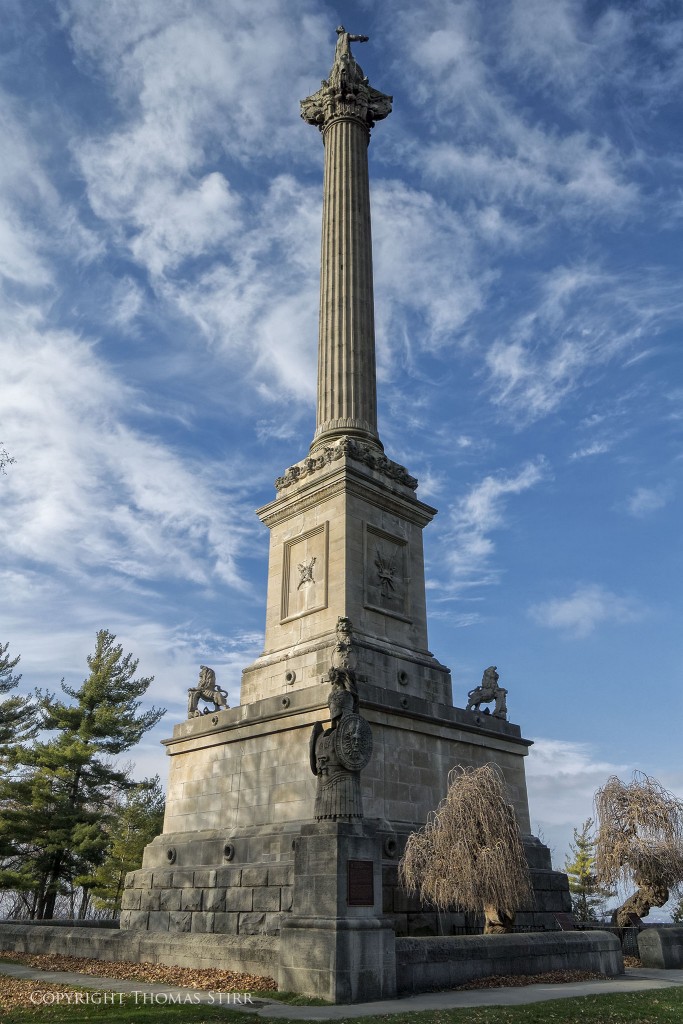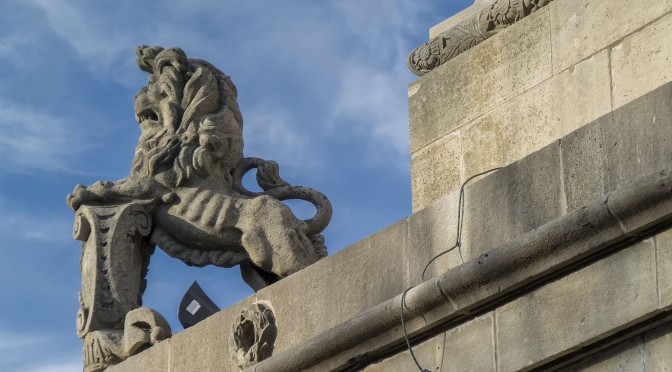Depending on our individual interests many of us visit historic sites, especially when on holidays. Photographing these sites can be challenging given the crowds that visit during the height of the tourist season. Planning a trip mid-week, or in the off season, can help reduce the number of people in our images so we can focus on the attributes of the historic site.
This article features a number of images taken at Brock’s Monument which is located in Niagara-on-the-Lake, Ontario. It also discusses some approaches you may want to consider when photographing historic sites.
NOTE: Click on images to enlarge

One of the first things that I look for when visiting a historic site is an approach shot that serves to put the site in context or can help to accentuate its size and grandeur.

Using a wide angle lens can be very helpful to achieve this type of look. Incorporating walkways or stairs can serve as good leading lines in our compositions.

Often there are walls and other types of structures at the entrance to historic sites that can make for some interesting images. If there are dramatic curves or lines in the structure I will often compose an image using it as a corner exit.

I love finding rusted, pitted metal details as they can communicate a sense of age and history.

Sometimes curving pathways and out buildings can be used for some more general types of landscape images.

Incorporating a portion of a monument can add some context to a landscape image.

I quite enjoy taking images of details at historic sites. Highlighting intricate carvings can add to your overall image collection and memories of your visit.


Capturing the wording on formal plaques can be a big help to identify the historic site, especially if you are on holidays and may be visiting numerous sites during your trip.

I often try to capture these types of images as squarely in the frame as possible, and sometimes use perspective control software in post to align things a bit better.

Some sites evoke emotional responses from people and sometimes impromptu memorials can be found at historic sites. I like to photograph these as they often provide additional context.


Ultimately I think all photographers look for that one, special image that communicates a sense of grandeur and significance.

When photographing tall structures I’ve found that corner views often create a more pleasant viewing angle while still accentuating its size and scope.
When shooting with a smaller-sensor camera like Nikon 1 or a M4/3 body that may have limited dynamic range, it can be very helpful to use graduated neutral density filters to help get more balanced exposures. For the image above, and many others in this article, I used a Lee .9ND soft edge filter. Skies in some images were further adjusted using the polarizing function in Color Efex Pro 4.
All images were shot hand-held using a Nikon 1 V2 and a 1 Nikon 10-100 mm f/4-5.6 zoom lens, and were created from RAW files using my standard post process.
My intent is to keep this photography blog advertising free. If you enjoyed this article and/or my website and would like to make a modest $10 donation through PayPal to support my work it would be most appreciated. You can use the Donate button below. Larger donations can be made to tom@tomstirr.com through PayPal.
Article and all images Copyright Thomas Stirr. All rights reserved. No use, duplication of any kind, or adaptation is allowed without written consent.


One thought on “Photographing Historic Sites with Nikon 1”